The Cannondale Synapse evolves
Designed to take you off the tarmac too
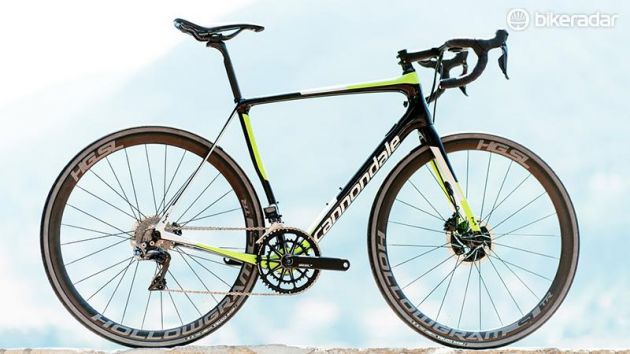
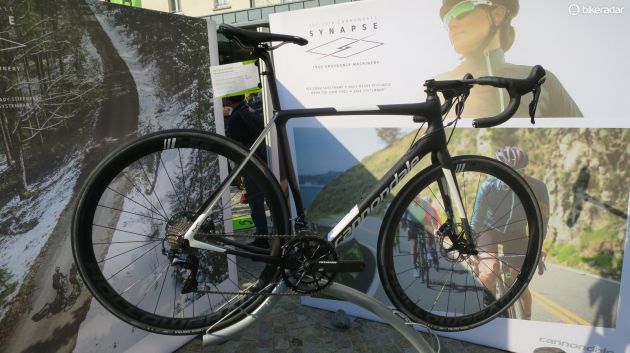
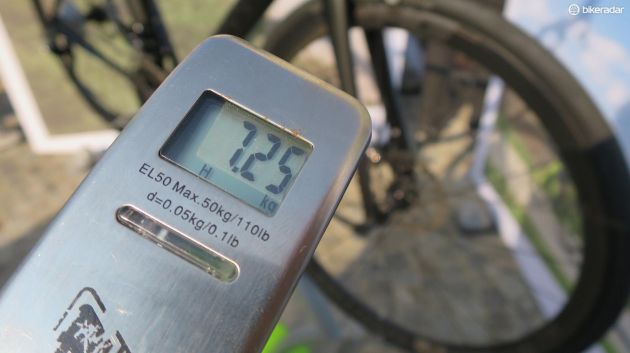
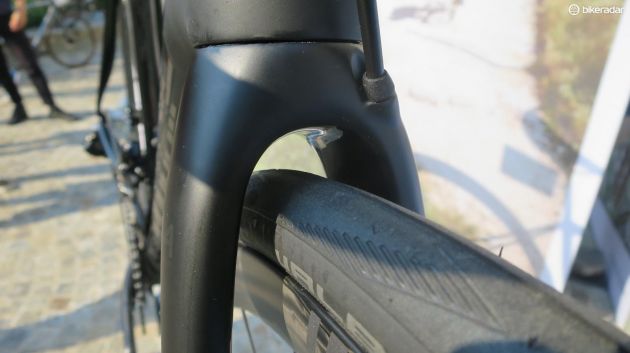
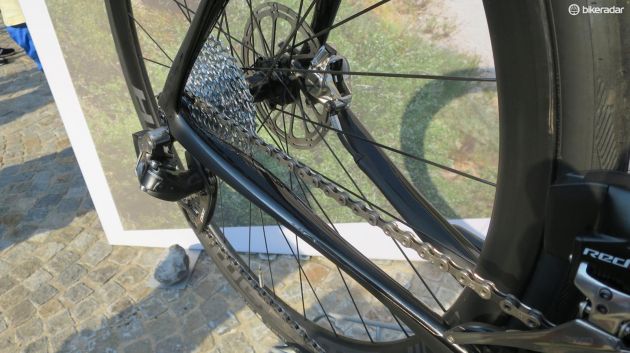
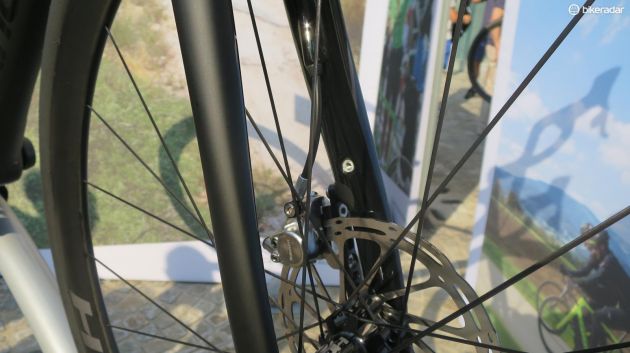
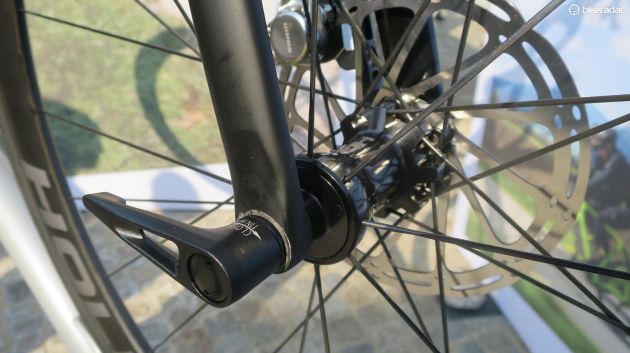
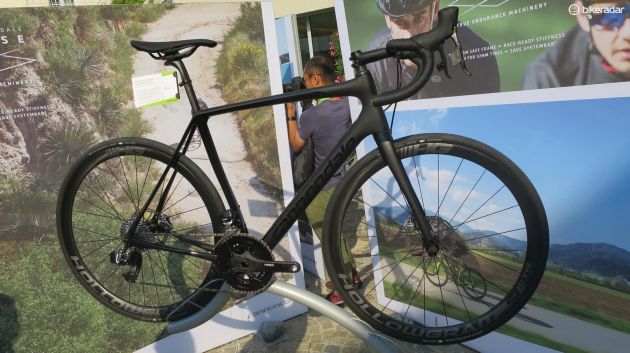
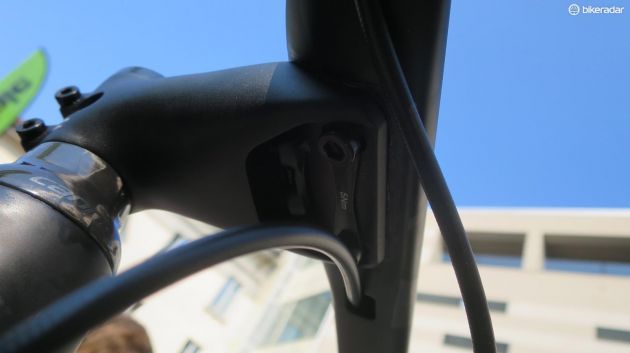
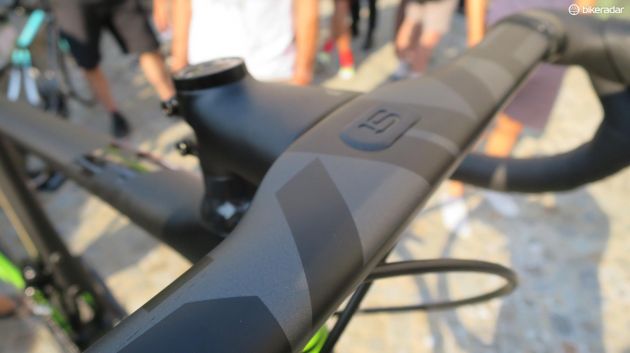
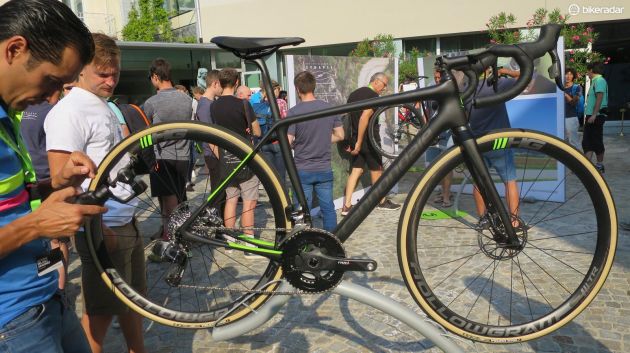
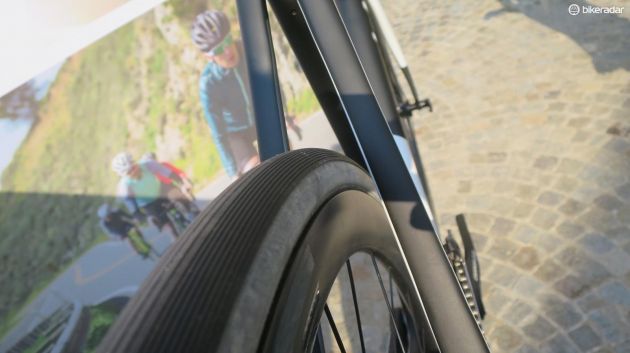
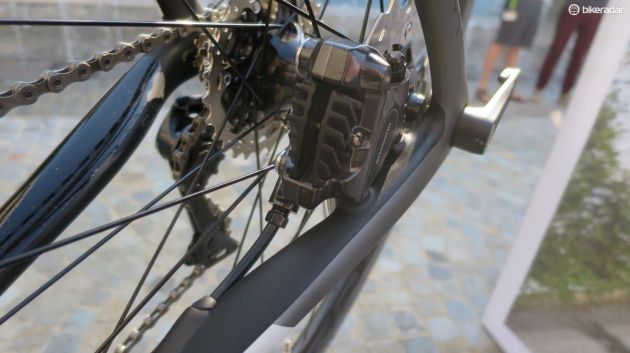
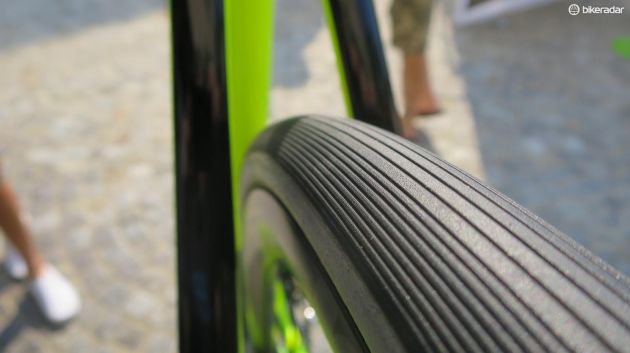
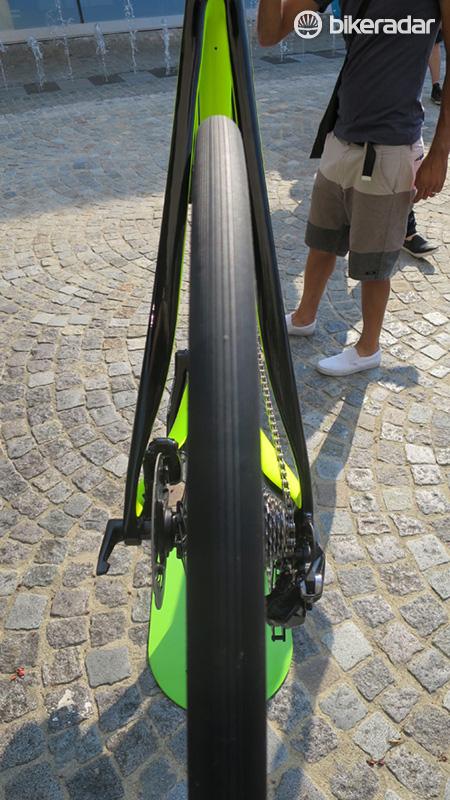
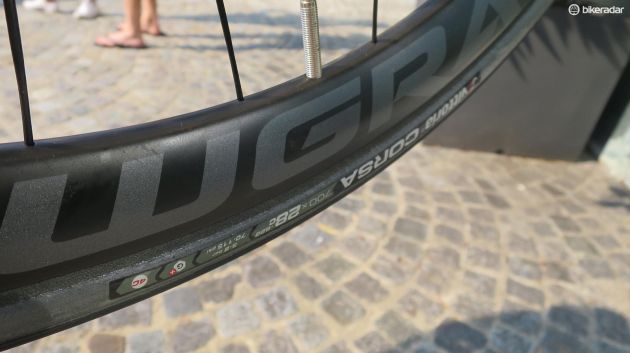
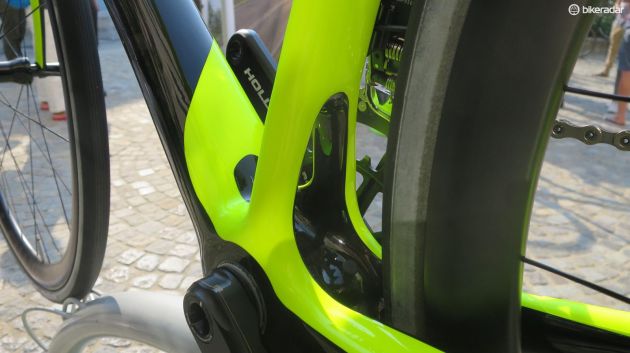
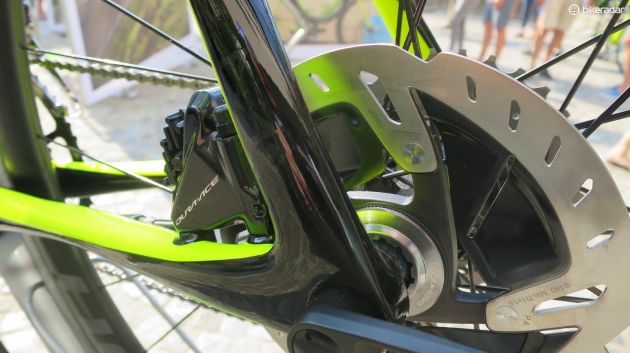
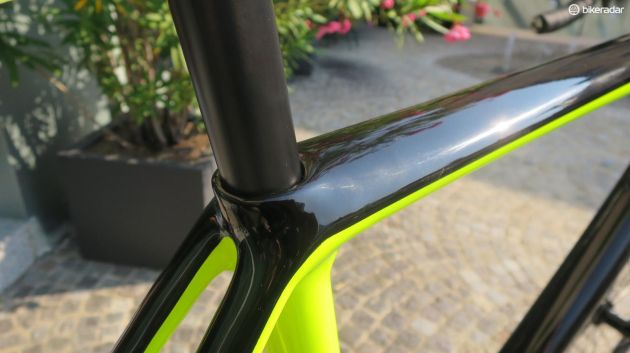
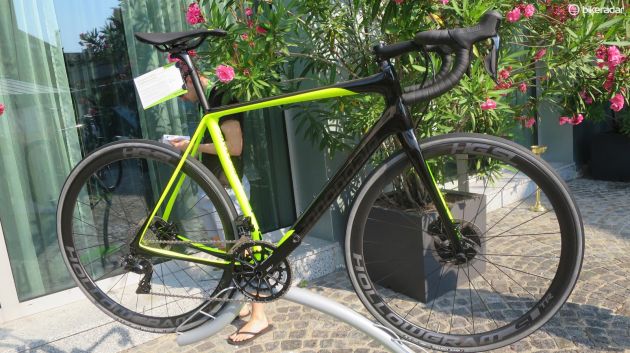
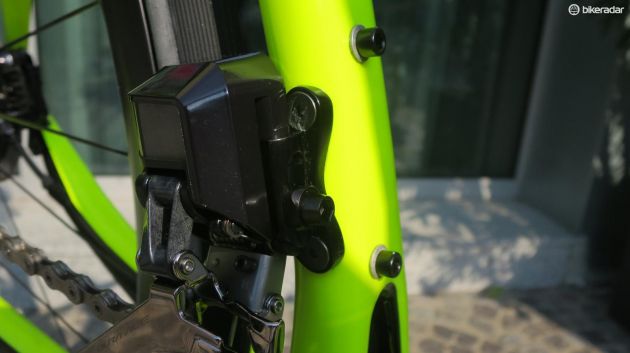
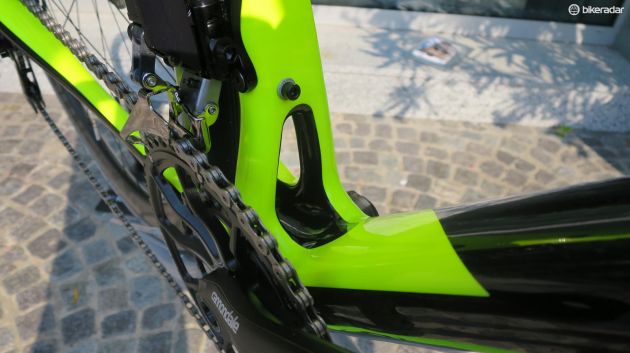
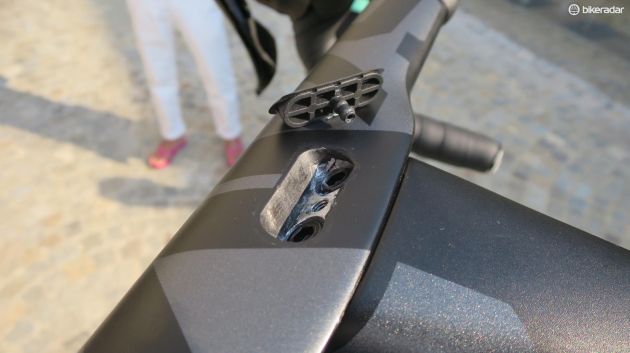
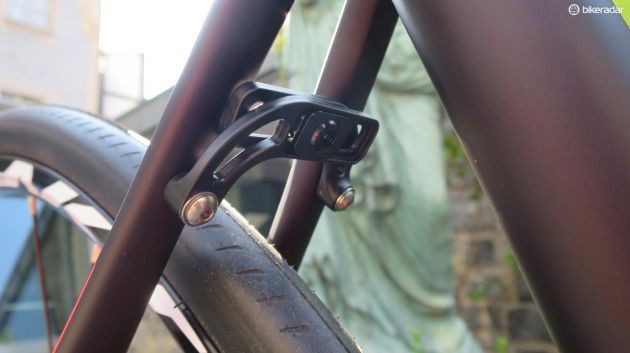
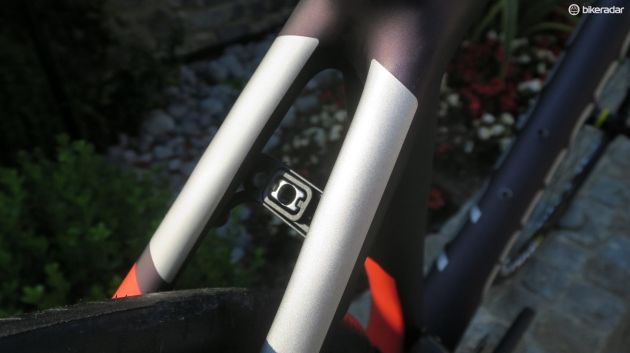
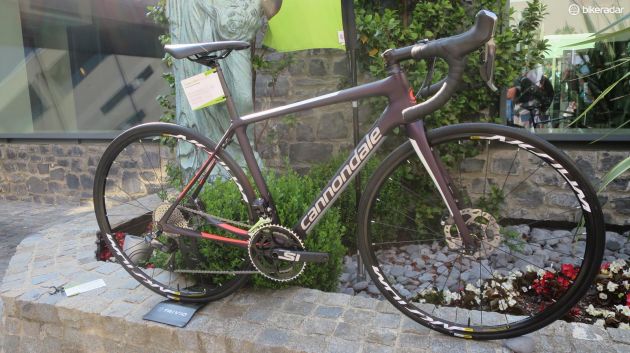
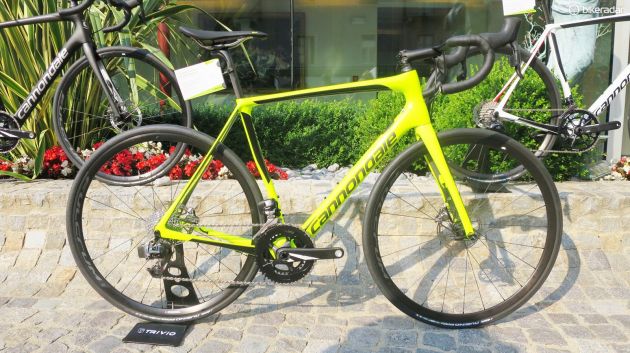
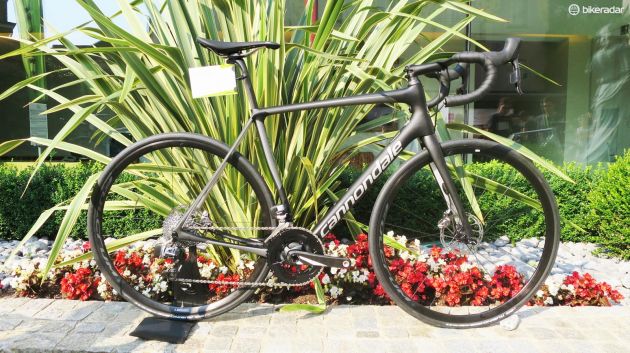
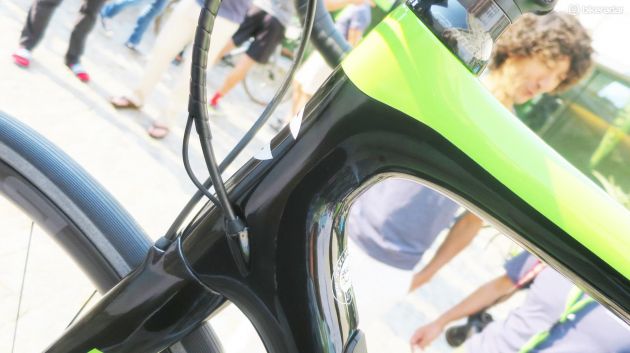
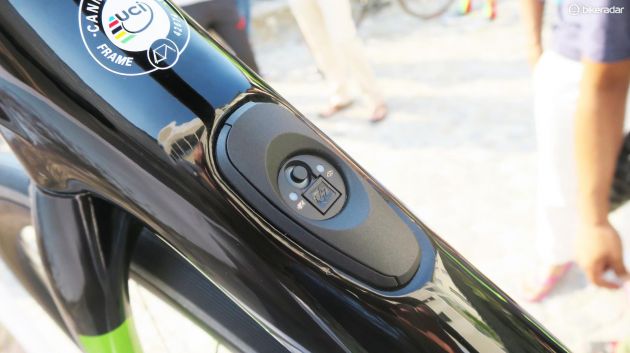
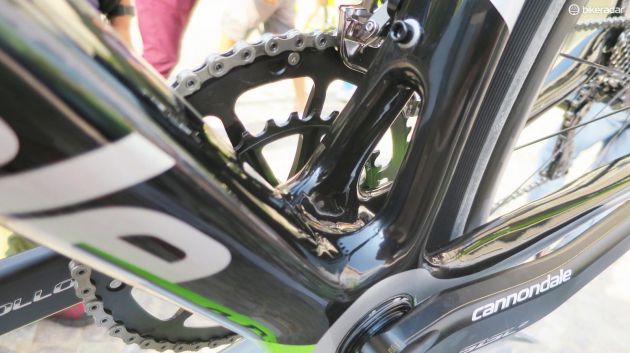
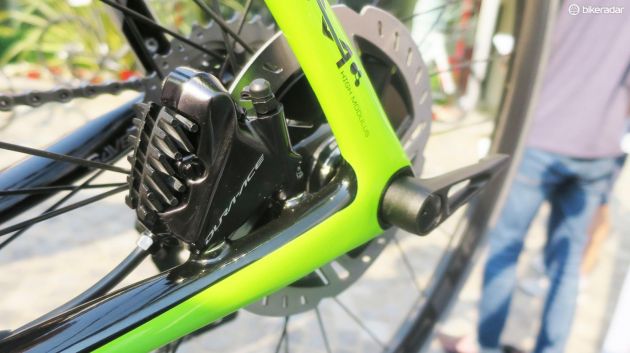
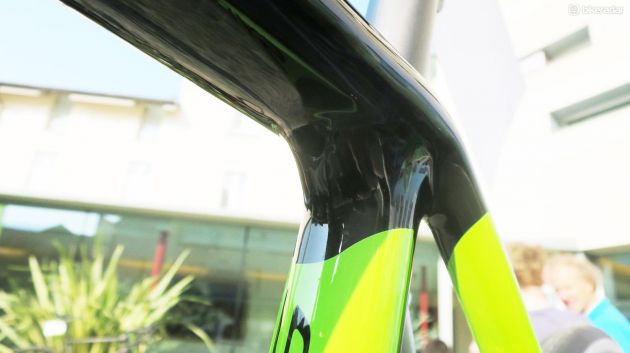
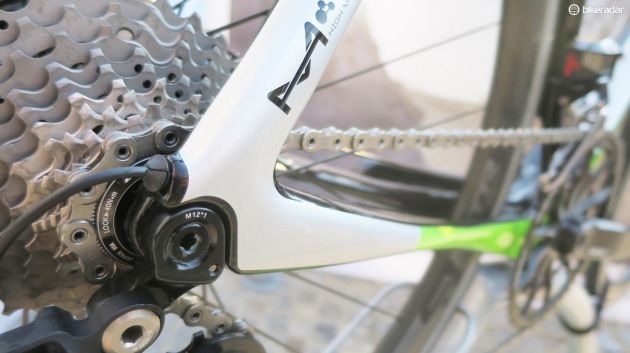
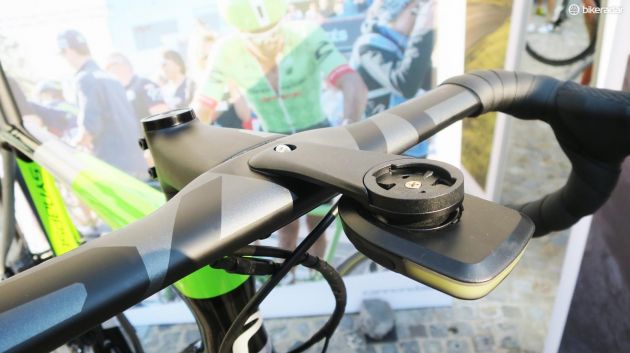
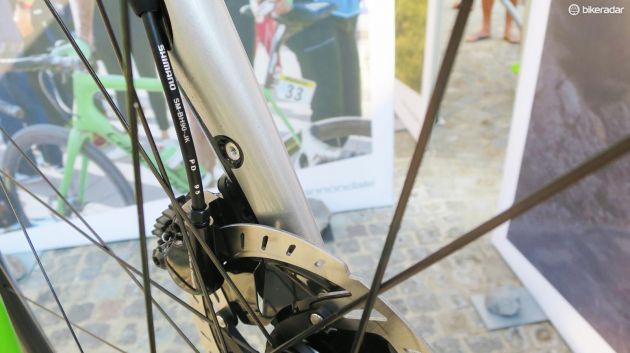
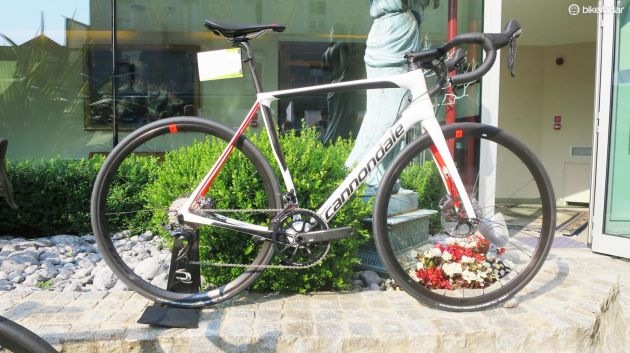
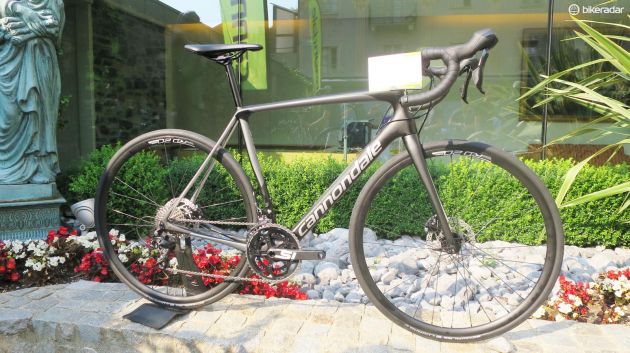
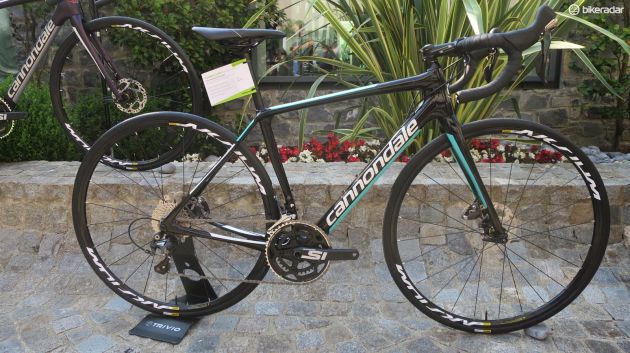
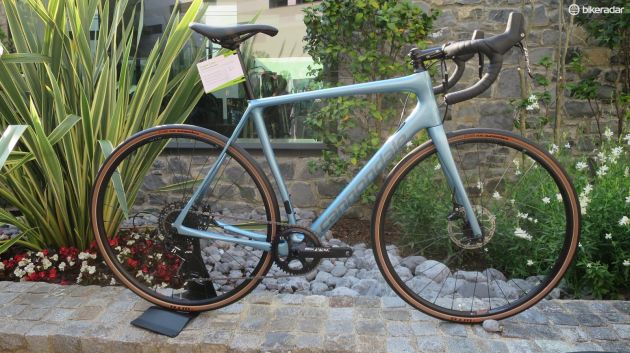
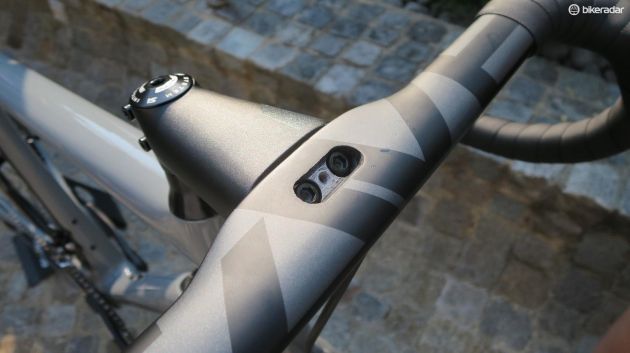
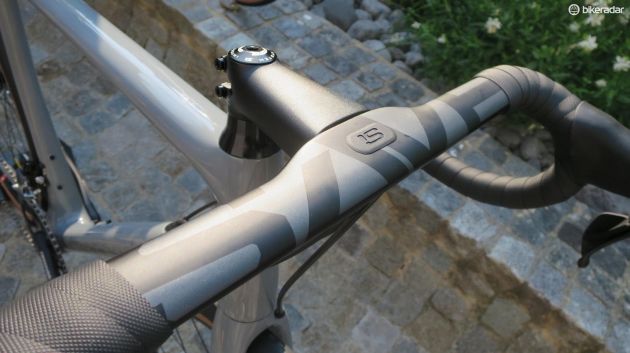
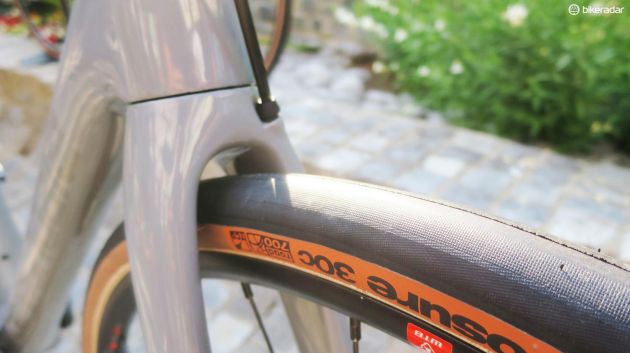
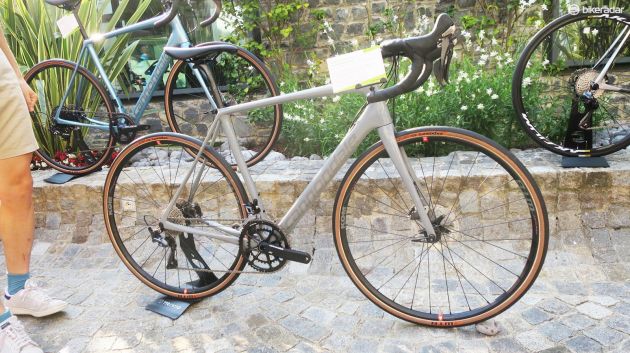
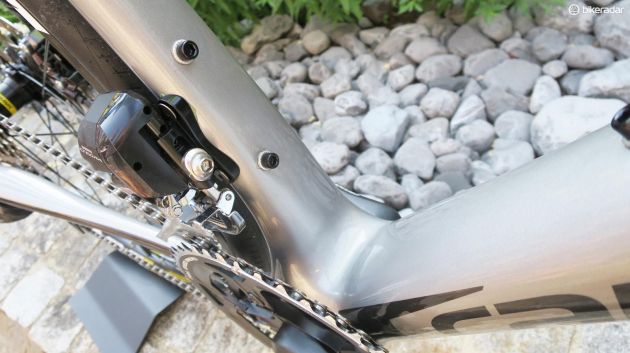
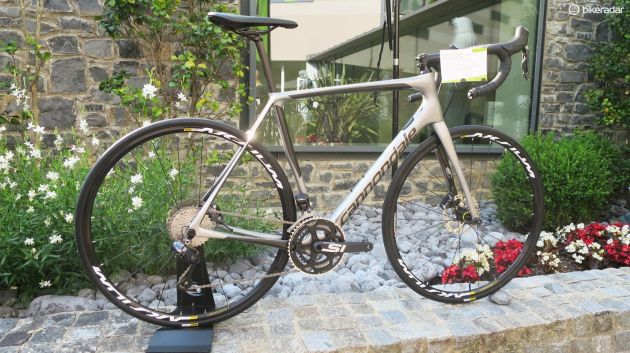
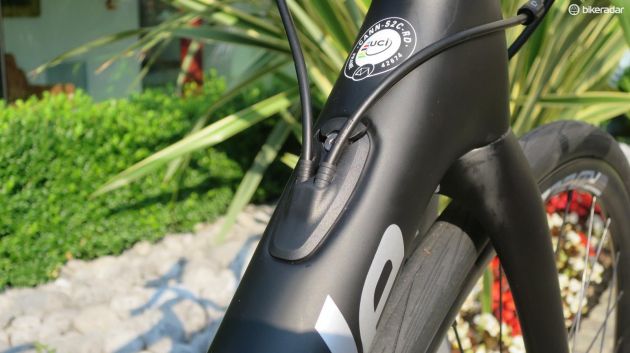
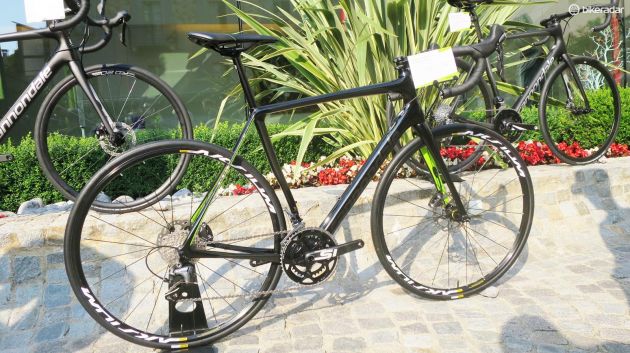
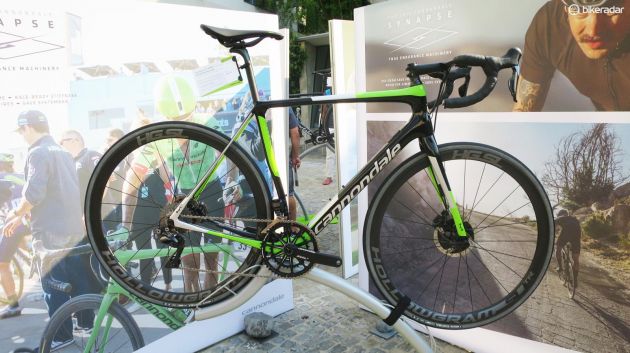
This article originally appeared on BikeRadar
We here at BikeRadar are big fans of the Cannondale Synapse, in fact Senior Tech Editor Warren Rossiter is still riding the 2014 Bike of the Year model on a daily basis with no thoughts as to wanting to change it anytime soon.
However, we do think Cannondale has missed a trick with the new Synapse. At first glance it looks pretty much the same as the 2014 Bike of the Year winning design, but drill down into the details and you'll see that every shape, surface, and junction is new. It's evolved, so surely it should be the Synapse Evo.
Yes, the changes look subtle, but they are plenty significant, not least in the geometry. The existing bike was the basis, but project head, David Devine, tells us: "We worked with the engineers and designers to take the Synapse platform and redefine it as race endurance, so that means we want to retain the character of the Synapse but inject it with more of a racing feel, so it's got lighter, lower and more responsive."
The bike's stack is lower by a single millimetre (size 58) than the previous design, and the bottom bracket height is 5mm lower to account for bigger tyre clearance. So the net stack is in effect much lower and the reach is actually reduced by 1mm, but the wheelbase is down 4mm. The trail is also up by a millimetre to 58, again to account for the use of bigger tyres, and the net effect is a bike with sharper responses than before — not that the previous Synapse was any slouch in this department.
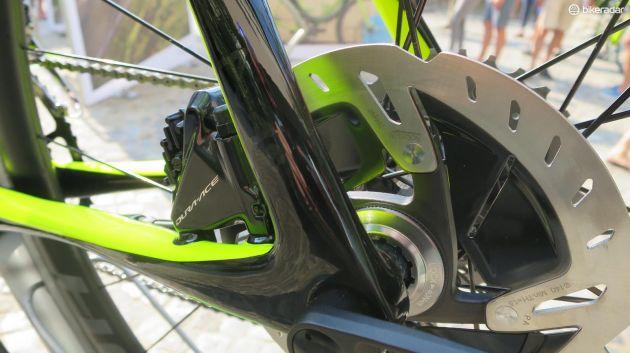
Shimano's new Dura-Ace disc brakes
The biggest departure is that the new Synapse is disc only, with the frame and fork now taking a 12mm thru-axle as standard. The design team has worked on making the frame and fork balanced between drivetrain and disc brake forces, which makes for a design that's one of the most asymmetric I've seen.
Get The Leadout Newsletter
The latest race content, interviews, features, reviews and expert buying guides, direct to your inbox!
The fork legs are shaped very differently between disc and non-disc side, and the unique BB/seat tube shaping of the Synapse (with the twin-sparred power pyramid design) has now become much more offset, while both chainstays have completely individual profiles to boot.
The tubing profiles are all defined by Cannondale's SAVE design (Synapse-Active-Vibration-Elimination), which was introduced back in 2002 on the first Synapse — and Cannondale's first all-carbon road frame. These SAVE zones, where a combination of tubing shape, material, and layup and orientation of the carbon fibres, provide vibration nulling flex on the Synapse and extend beyond the usual areas of the frame (stays, fork legs, seat tube) to include the 25.4 carbon post, and for the first time a bar with SAVE properties.
Size matters
Optimising designs for a wide variety of sized riders was also a big concern for the new Synapse, and for a bike that's available from 44cm to 61cm that's a pretty complex problem to solve.
Cannondale's unique approach is to offer size specific diameters on the frame (main tubes), head tube, and fork steerer. So on the smallest models it's a 11/8” steerer fork with a 60mm rake, on sizes 51–54 it's a 11/8 – 11/4 and a 55cm rake, and on the 56–61cm there's a 11/8 to 13/8 with a 45mm rake.
The idea is to create bikes that offer the same ride character and handling traits whether you're 5' tall and 60kgs or 6'4" and 120kg.
It's all-adaptable
Cannondale seems to have recognised that modern riders want to do have a bike that can go beyond the road.
The new frame has been designed around 32mm tyre clearances — though it ships with 28s — and in the UK the frame is also designed with mudguard mounts in place with a neat bolt-on bridge on the rear stays so you can fit proper mounting guards.
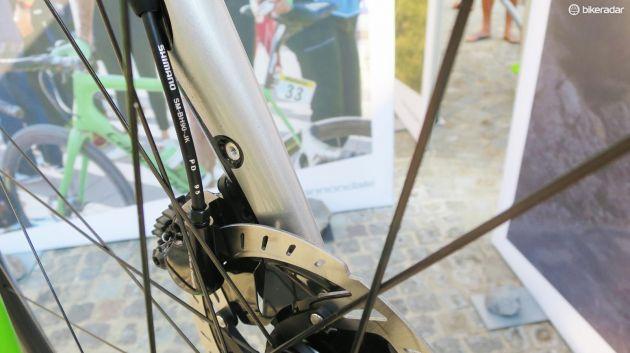
The Synapse fork neatly hides proper fender/mudguard mounts in the fork
For those who want to explore the 1x world, the front mech mount is removable for a cleaner look. The internal cable routing is adaptable to every system, with a port in the down tube that can either run standard cables, a flush fitting blanking plate or a rather neat holder for the new Di2 junction box, which was originally designed to fit into a bar end. Here it's much cleaner and simpler to fit and a really clever piece of design.
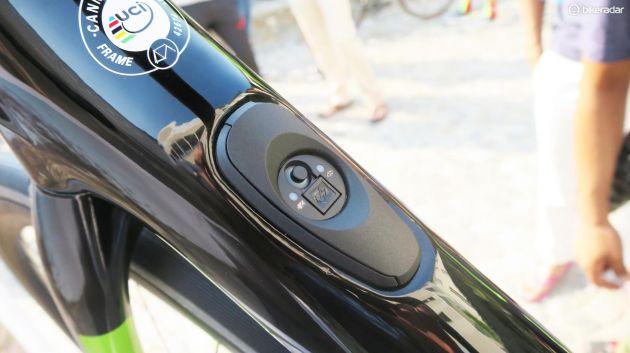
The super-clean integration of the bar end Di2 junction box into the down tube is a classy touch
Save it for the bar
The new SAVE Systembar is the most attention grabbing part of the new bike, it initially looks like a one-piece bar and stem combo, but under closer inspection you can see it's a carbon bar that connects uniquely to a triangulated stem.
The stem forgoes a standard clamp zone in favour of an arc shaped cradle which the elliptically shaped bar sits in. It's clamped in place by four bolts (two from the top and two from the underside) through the bar centre, which has a moulded-in aluminium clamp section. This allows the bar to be a continuous elliptical shape on the top section, which is engineered to reduce noise and has the added advantage of being more aerodynamic than a standard bar/clamp setup — Cannondale insists it didn't design the new bike with aero gains in mind, rather it's elliptically shaped because it's better ergonomically.
The cockpit's unique clamping arrangement offers significant advantages over a traditional one-piece bar because you can mix and match the bar — available in 38–44cm widths — with stems of +6degrees in 70-100mm lengths or -6 degrees in 80-130mm lengths.
The arc cradle design also means you can alter the pitch of the bar by up to 8 degrees, so you can rotate the drop either up or down.
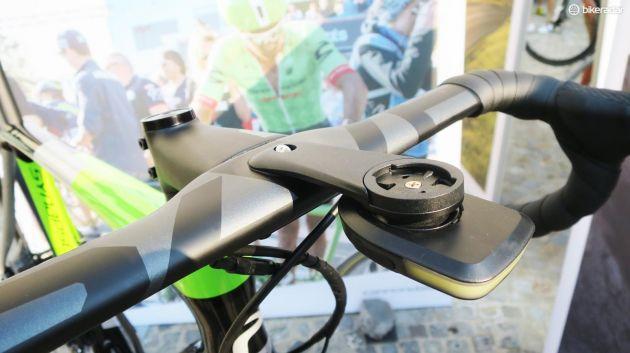
The SAVE Systembar comes with both an integrated Garmin mount and a new Lumaray light from Fabric
The bar comes complete with an integrated out-front Garmin mount, which also has an under-mount for a Fabric Lumaray front light, which is also included. The light has mounts on both sides so it's possible to stack more than one from the mount should you want a little extra power.
The big numbers
For any new edition of an old favourite I'd expect the same; a drop in weight and an increase in stiffness etc. While the new Synapse is no different, the frame weight for a 56cm frame painted with all hardware in place is 220g lighter than before (weighing 950g) and the fork is down to 367g — that's 116g lighter.
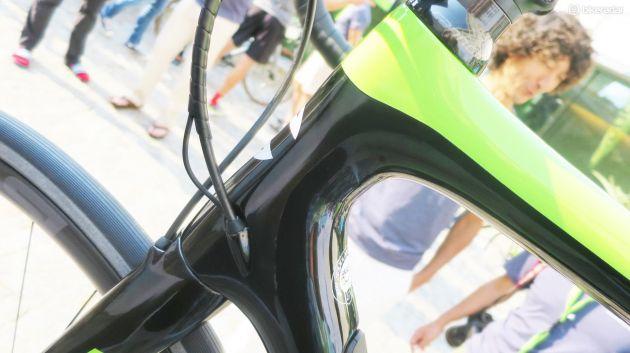
The Synapse head tube and bearing diameter is now size specific
The head tube stiffness is up by 9.4 percent, in part by making the new Synapse that little more racy.
The Hi-Mod Synapse however is only the first part of the range, the new Synapse Carbon (which starts at £2,199.99 / $2,499.99) features a frame with all the same features, but is built from a more cost effective carbon. The only design change is around the bottom bracket shell, so instead of the very complex (and expensive to manufacture) twin-spar Power Pyramid, the Synapse carbon has a simpler offset triangular transition between the tube and bottom bracket.
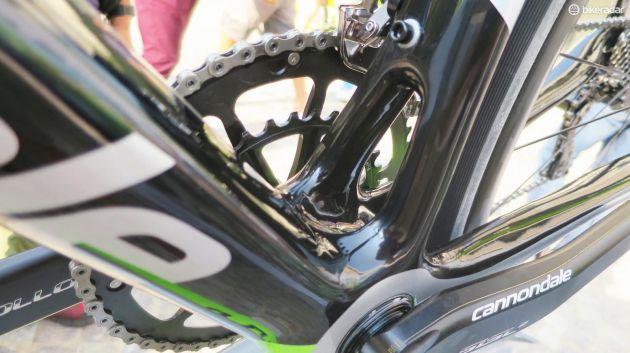
The Power Pyramid seat tube design carries over from the previous Synapse but now it's a more asymmetric design
The standard carbon model's frame tips the scales at 1,100g, and surprisingly that's still lighter than the previous generation's pricey Hi-Mod version.
Special editions
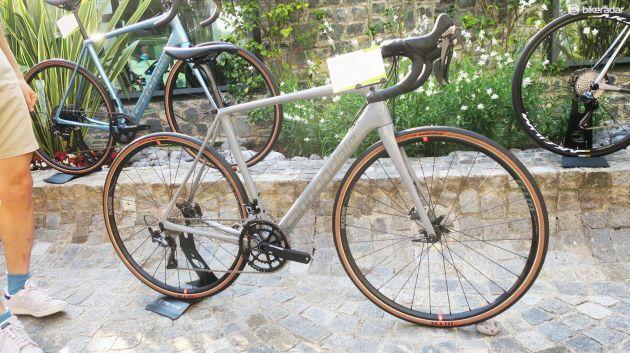
The SE Ultegra bike is built in a much more gravel friendly spec
To build on the adventurous and adaptable nature of the new Synapse, Cannondale has included two SE models in the range.
The first is a SRAM Apex 1x equipped model, with the front mech clamp removed, and built with wide WTB alloy rims, fat 30c WTB Exposure tubeless tyres and a gravel friendly gear range of 42-11-42.
The Ultegra SE version gets a 50/34, 11-34 gear range and shares the same tubeless tyres, but has a higher grade WTB KOM i21 wheelset and a SAVE Systembar.
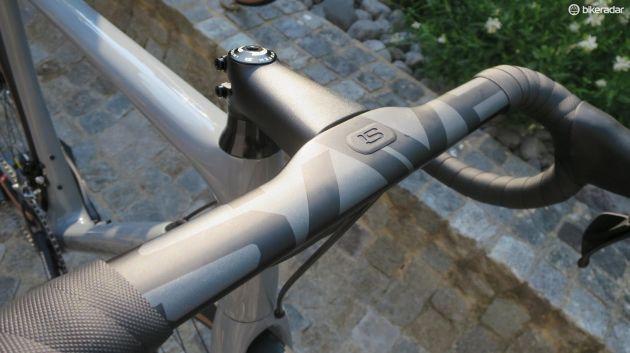
Alongside the gravel spec it also gets the new SAVE cockpit
Neither of the SE models is confirmed for the UK yet, but we think at least one from the range will be coming to our shores.
The range
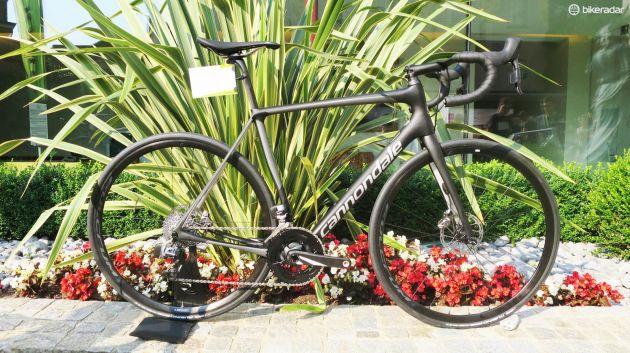
The lower level Synapse carbon frame now comes in some high-end builds, such as this SRAM eTap model
The Hi-Mod range consists of just three bikes: an eTap model, mechanical Dura-Ace and Di2 Dura-Ace.
For the first time in Synapse history though there will be higher grade builds on the standard carbon bike. So for £1,500 less than its Hi-Mod cousin you can have the Synapse Carbon eTap at a penny shy of five grand or the Dura-Ace mechanical for £1,000 less than its Hi-Mod counterpart.
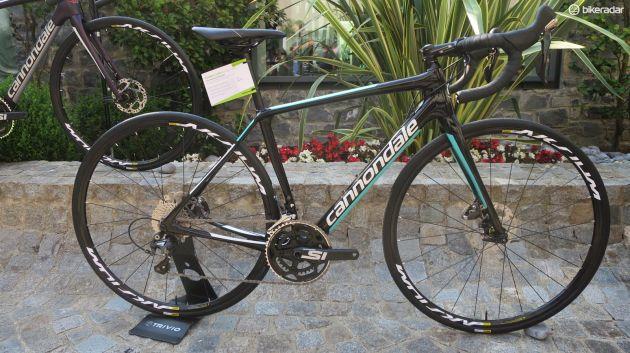
The women's range starts with this Ultegra equipped model
Three women's specific models are in the standard carbon range: the Synapse Carbon UDi2 priced at £3,699.99 / $4,199.99, an Ultegra model and a SE Apex 1x version, while an eTap Hi-Mod version in women's specific spec completes the line up.
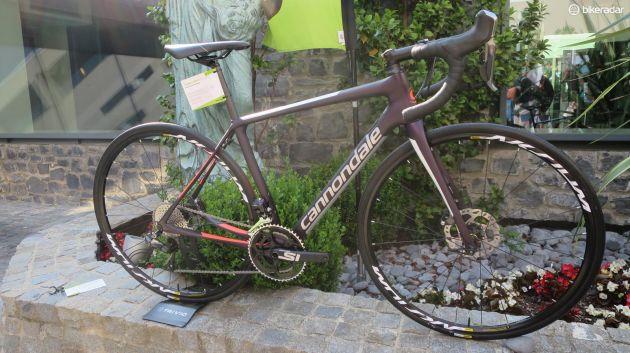
Rising to an Ultegra Di2 equipped version in women's
Cannondale Synapse pricing
Men's range
- Synapse HM Disc D/A Di2: £7,799.99 / $9,999.99 / AU$TBC
- Synapse HM Disc Red eTap: £6,499.99 / $7,999.99 / AU$TBC
- Synapse HM Disc D/A: £4,999.99 / $6,499.99 / AU$TBC
- Synapse Crb Disc eTap: £4,999.99 / $5,999.99 / AU$TBC
- Synapse Crb Disc D/A: £3,999.99 / $4,999.99 / AU$TBC
- Synapse Crb Disc Ult Di2: £3,699.99 / $4,199.99 / AU$TBC
- Synapse Crb Disc SE Ultegra: £3,799.99 / $3,499.99 / AU$TBC
- Synapse Crb Disc Ultegra: £2,699.99 / $2,999.99 / AU$TBC
- Synapse Crb Disc 105: £2,199.99 / $2,499.99 / AU$TBC
- Synapse Crb Disc SE Apex: £N/A / $2,499.99 / AU$TBC
Women's range
- Synapse Crb Disc Ultegra Di2: £3,699.99 / $4,199.99 / AU$TBC
- Synapse Crb Disc Ultegra: £2,699.99 / $3,499.99 / AU$TBC
- Synapse Crb Disc SE Apex: £N/A / $2,499.99 / AU$TBC